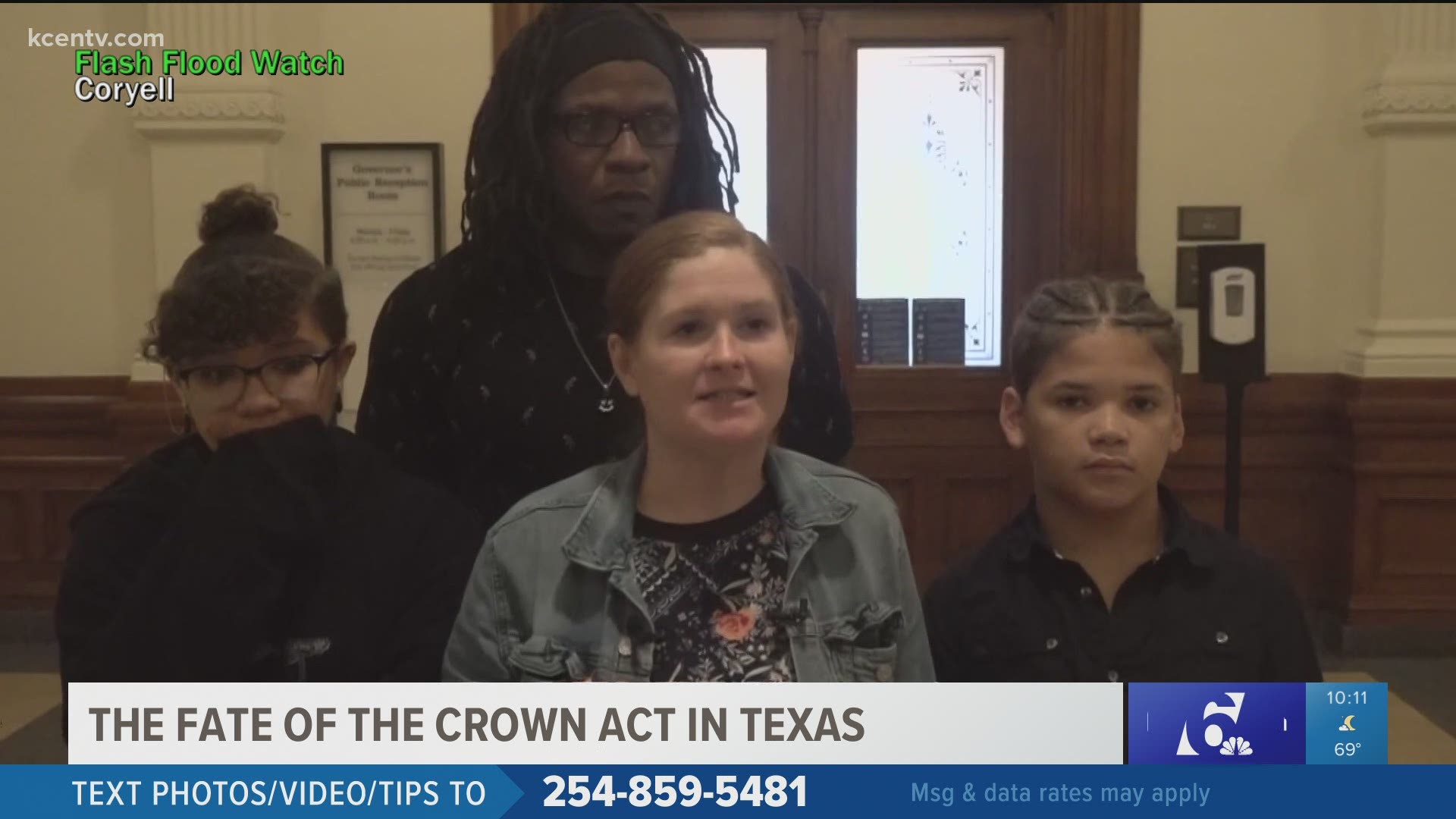TEMPLE, Texas — The CROWN Act died in the Texas House, so many are left asking "what now?"
The CROWN Act, or Creating a Respectful and Open World for Natural Hair, bans educational, employment and housing discrimination based on hair texture or styles including braids, locks and twists.
House Bill 392 had bipartisan support, but time ran out for it to be reviewed before the deadline.
However, similar legislation, Senate Bill 77, is being considered in the Texas Senate.
But if SB 77 is not passed by the end of the legislative session on May 31, we may have to wait until 2023 for it to be brought up for a vote again.
"I think ultimately, the CROWN Act really does promote real authentic acceptance," State Representative Rhetta Bowers (D-Garland) said.
The CROWN Act movement gained momentum across the country in 2019, following stories of Black children facing discrimination and school suspensions on the basis of their natural hair.
It's hard to forget the story of Houston area teen De'Andre Arnold. He was suspended from school last year and told he couldn't walk at his high school graduation unless he cut off his dreadlocks.
It was the tipping point for Bowers who authored the Texas CROWN act alongside four coauthors and nearly 60 sponsors.
"We just can't be OK with knowing that people have been passed over for housing jobs or an education when it comes to just basically how they wear their hair and how their hair grows out of their heads," Bowers said.
Recently, a local student, 11-year-old Troy ISD student Maddox Cozart, faced penalties for his natural hair.
"It's a lot, it's frustrating I feel horrible for my son," said mom Hope Cozart.
Hope Cozart said her biracial son was forced to spend 11 consecutive days in in-school suspension.
The district said his braided hairstyle violated the school dress code.
"It's not just hair. I get it some other kids were told to cut their hair as well and y'all did that that's fine because to y'all hair it's just hair, but in our home, it's how our children express themselves. It's part of their culture," Hope Cozart said.
CROWN Act proponents say discrimination extends far beyond the classroom.
"Hair discrimination includes being fired, past over for promotions, and even having offers of employment rescinded," said Adjoa Asamoah, a social impact and political strategist.
Killeen City councilwoman Jessica Gonzalez said she's had conversations with women of color all across the country on the topic of natural hair in the workplace. One woman, who served as a judge told Gonzalez her natural blown-out hair was viewed as unprofessional.
"I just don't understand why that's even an issue at this point in 2021. It's very difficult to process," Gonzalez said.
But the discrimination is common, according to a recent study by Dove.
The study found Black women's hair is 3.4 times as likely to be perceived as "unprofessional" versus white women's hair.
Gonzalez said that's unfortunate.
"Our hair is beautiful and it's personable and it comes in all shapes styles. And we can do so many different things with it," Gonzalez said.
As for the fate of the CROWN Act in Texas, Bowers said her team is still working on ways to get it passed.
"Some of the other thoughts that we've had is to try to amend other discrimination bills by putting some language in. So we'll continue to search for those vehicles," Bowers said.
She also mentioned trying to get the CROWN Act passed in other jurisdictions like on a city or county level.
"So my work is going to continue across the state just trying to see if we can continue to build the momentum and grow the foundation we've already laid," Bowers said.
Currently, the CROWN Act is law in nine states, according to the CROWN Coalition. New Mexico and Nebraska passed legislation inspired by the CROWN Act and a number of cities and counties have also passed it.
Bowers said her hope is to see Texas added to the list.
"It's legislation that is necessary," Bowers said.

